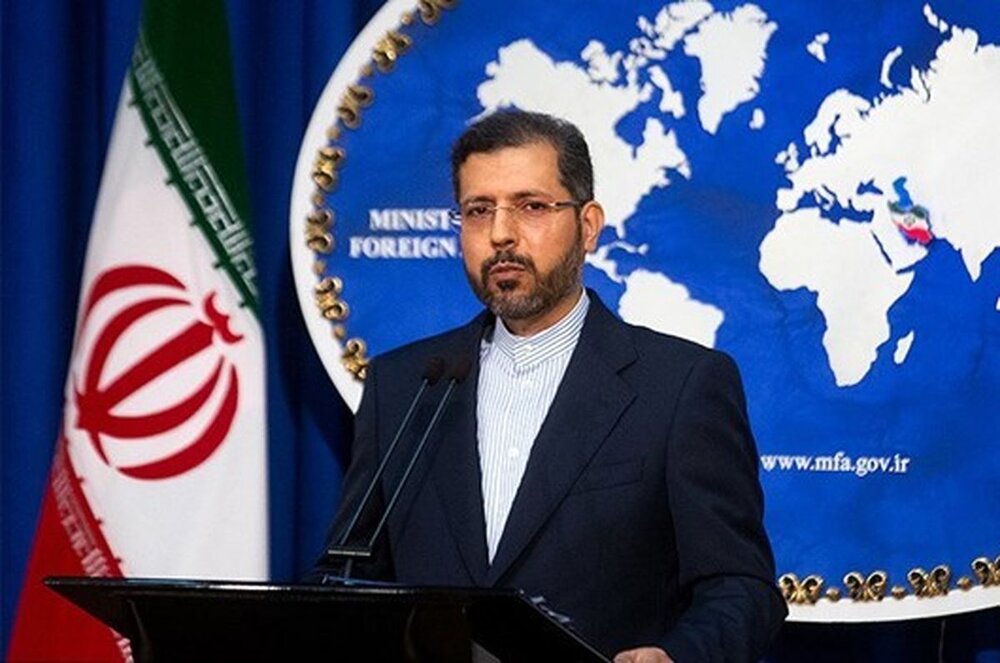Iran says siege of Panjshir Valley contravenes international law

TEHRAN – The Iranian Foreign Ministry said on Monday that the blockade of the Panjshir Valley in north of Kabul by the Taliban contravenes international law and humanitarian law.
The ministry reiterated Tehran’s position that there is only a political solution to the issues surrounding the Panjshir Valley.
“There is only political solution to Panjshir and the siege of Panjshir is by no means acceptable in terms of international law and humanitarian law,” Foreign Ministry spokesman Saeed Khatibzadeh told a regular news briefing.
The Taliban said on Monday they have taken control of Panjshir province, AP reported.
Panjshir was the last holdout of anti-Taliban forces in the country and the only province the Taliban had not seized during their blitz across Afghanistan last month.
Taliban spokesman Zabihullah Mujahid issued a statement saying Panjshir was now under full control of Taliban fighters. But the National Resistance Force (NRF) has strongly denied the claims.
"Taliban’s claim of occupying Panjshir is false. The NRF forces are present in all strategic positions across the valley to continue the fight. We assure the ppl of Afghanistan that the struggle against the Taliban & their partners will continue until justice & freedom prevails," the NRF tweeted.
Also, an NRF spokesman, Ali Nazary, told CNN, "The resistance is still all over the valley."
In reference to the Taliban offensive, NRF leader Ahmad Massoud said Monday that "in no way military pressure on us and our territory will lessen our resolve to continue our fight."
Photos and videos shared widely on social media showed the white flag of the Taliban hoisted between buildings in what appeared to be the Panjshir governor's office in the provincial capital of Bazarak.
Khatibzadeh said reports from Panjshir are “worrying”. He added the attack on the province is condemned in the strongest terms.
Fahim Dashti, the spokesman for the anti-Taliban group, was killed in a battle on Sunday, according to the group’s Twitter account. Dashti was the voice of the group and a prominent media personality during previous governments.
He was also the nephew of Abdullah Abdullah, a senior official of the former government who is involved in negotiations with the Taliban on the future of Afghanistan.
Khatibzadeh said the “martyrdom” of Afghan leaders is a “source of regret”.
“No side must allow that this course lead to fratricide,” he said, adding that the Taliban should abide by international law.
He went on to say that “starving” the people of Panjshir and “cutting their water and electricity is a cause of concern and regret.”
In his statement, Mujahid sought to assure residents of Panjshir that they would be safe — even as scores of families reportedly fled into the mountains ahead of the Taliban's arrival.
"We give full confidence to the honorable people of Panjshir that they will not be subjected to any discrimination, that all are our brothers, and that we will serve a country and a common goal,” Mujahid said in his statement.
Afghanistan's new rulers have pledged to be more "inclusive" than during their first stint in power, which also came after years of conflict — first the Soviet invasion of 1979, and then a bloody civil war.
They have promised a government that represents Afghanistan's complex ethnic makeup.
Massoud said in a Facebook post on Sunday he is in support of clerics in the capital Kabul who have called for an end to the fighting and was ready to talk once the Taliban withdrew troops from Panjshir and the neighboring district of Andarab.
There's been no official Taliban response to Massoud's proposals.
In his Facebook post on Monday, Massoud said he had lost family members in the fighting in Panjshir.
Massoud added that the NRF accepted the appeal of religious leaders to end the fighting, but the "Taliban showed their identity and showed that they have no belief in Sharia."
"The Taliban started attacking us which resulted in the killing of a large number of our countrymen including my family members," he said, according to CNN.
Massoud said that what was happening in Afghanistan would make the country "backward, dark, far from any kind of culture and art and unity as well as an Afghanistan that is in total isolation from the rest of the world."
